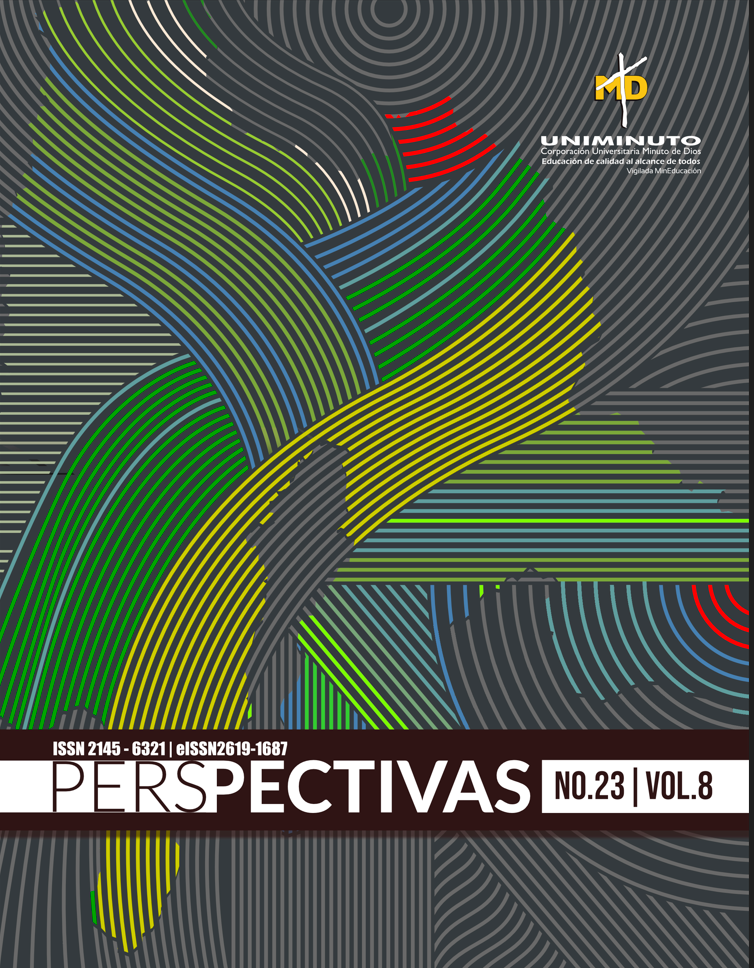Results of a diagnostic survey of research students
Main Article Content
Abstract
The article presents the analysis of the results of the diagnostic survey applied to the research seminarians of the Faculty of Administrative, Economic and Accounting Sciences of the University of Cundinamarca in Colombia, in the framework of the design of a Seminarian Training School. This instrument is part of the development of a macro research, with a proposal to be presented called Training School for Research Semilleristas, in order to strengthen their competences towards the management and appropriation of elements of science, technology and innovation, which contribute more directly to the management of university research groups and leaders. Within the framework of the project, a qualitative and experimental research methodology was used, taking a pilot group of semilleristas to make a diagnostic survey and train them for two months in the central components of Elements and transfer of Research; Writing and publication of research and Semillerista action route. in articulation with the Educational Model of the University of Cundinamarca. Among the main results of the diagnostic survey, it is found that, for a total of 98 participating research semilleristas, the need for training is fundamental and should be permanent, although the frequency and modality of the meetings with their research professor leader of the semillero is not constant. The main conclusion drawn from this analysis is to affirm that the training of research fellows, through a virtual classroom process, can facilitate the research activity of a research fellowship leader, given the possibility of saving time in the teaching process in science concepts, technology and innovation with an investment in the exploratory learning of the student, in relation to the environment, stimulating and encouraging their students to contribute in a more concrete way with the transfer and visibility, with great opportunities for the generation of new knowledge (through research papers, papers, articles and contribution in book chapters). Therefore, a Research Seminar Training School should be designed according to the realities of the new generations eager to do research, taking advantage of the use of current technological tools.
References
Benítez-Leal, F., Gayosso-Mexia, S., & Carrizal-Alonso, A. (2018). La investigación formativa como estrategia pedagógica para el fomento de la educación científica y la cultura investigativa en el pregrado en turismo. Boletín Científico Investigium de la Escuela Superior de Tizayuca, 3(6)
Berrocal Villegas, S. M., Montalvo Fritas, W., Berrocal Villegas, C. R., Flores Rosas, V. R., & Jaimes Yabar, F. A. (2022). Caracterización y desafíos de la cultura investigativa en dos universidades estatales de Lima, Perú. Revista Universidad y Sociedad, 14(1), 375-383.
Boletín Semilleros de Investigación Universidad de Cundinamarca. (s.f.). Dirección de Investigaciones. Recuperado el 21 de marzo de 2022, de Semilleros de Investigación: https://www.ucundinamarca.edu.co/investigacion/index.php/semilleros-de-investigacion
Criado Dávila, Y. V., Sánchez García, T. C., & Inga Arias, M. A. (2020). Los semilleros de investigación como elemento de desarrollo de la cultura investigativa universitaria. Revista Conrado, 16(S 1), 67-73. Recuperado a partir de https://conrado.ucf.edu.cu/index.php/conrado/article/view/1523
Fandiño, L. A. V. (2007). Las redes de investigación virtuales: propuesta de fomento y desarrollo de la cultura investigativa en las instituciones de educación superior. RUSC, Universities & Knowledge Society. Ministerio de Ciencia, Tecnología e Innovaión. (2020). Minciencias. Recuperado el 21 de marzo de 2022, de Minciencias: https://minciencias.gov.co/sites/default/files/documento_conpes_ciencia_tecnologia_e_innovacion.pdf
Granados Avendaño, A. E. (2015). Fomento de semilleros investigativos articulación de la universidad y el colegio para la formación de niós investigadores en Colombia. Repositorio . (U. M. Granada, Ed.) Bogotá, Colombia.
Londoño Palacio, O. L. (2011). Desarrollo de la competencia investigativa desde los semilleros de investigación. Revista científica “General José María Córdova” , 9 (9), 187-207.
REDCOLSI. (s.f.). RedColsi. Recuperado el 21 de marzo de 2022, de RedColsi: http://redcolsi.org/somosredcolsi/
Rojas Arenas, I. D., Durango Marín, J. A., & Rentería Vera, J. A. (2020). Investigación formativa como estrategia pedagógica: caso de estudio ingeniería industrial de la IU Pascual Bravo. Estudios pedagógicos (Valdivia), 46(1), 319-338.
Plan de Desarrollo 2020 - 2023 Universidad de Cundinamarca. (s.f.). Universidad de Cundinamarca. Recuperado el 21 de marzo de 2022, de Universidad de Cundinamarca: https://www.ucundinamarca.edu.co/documents/planeacion/2021/PLANDESARROLLO-2020-2023.pdf


